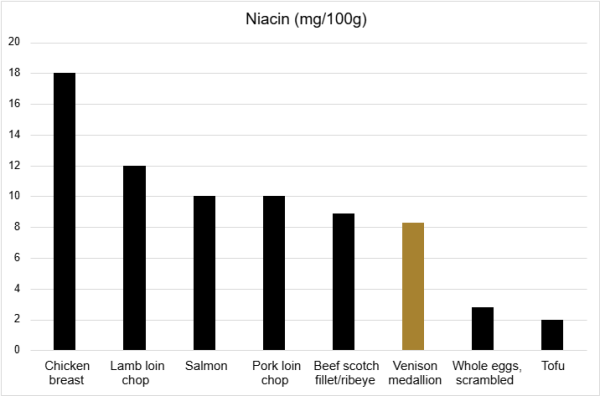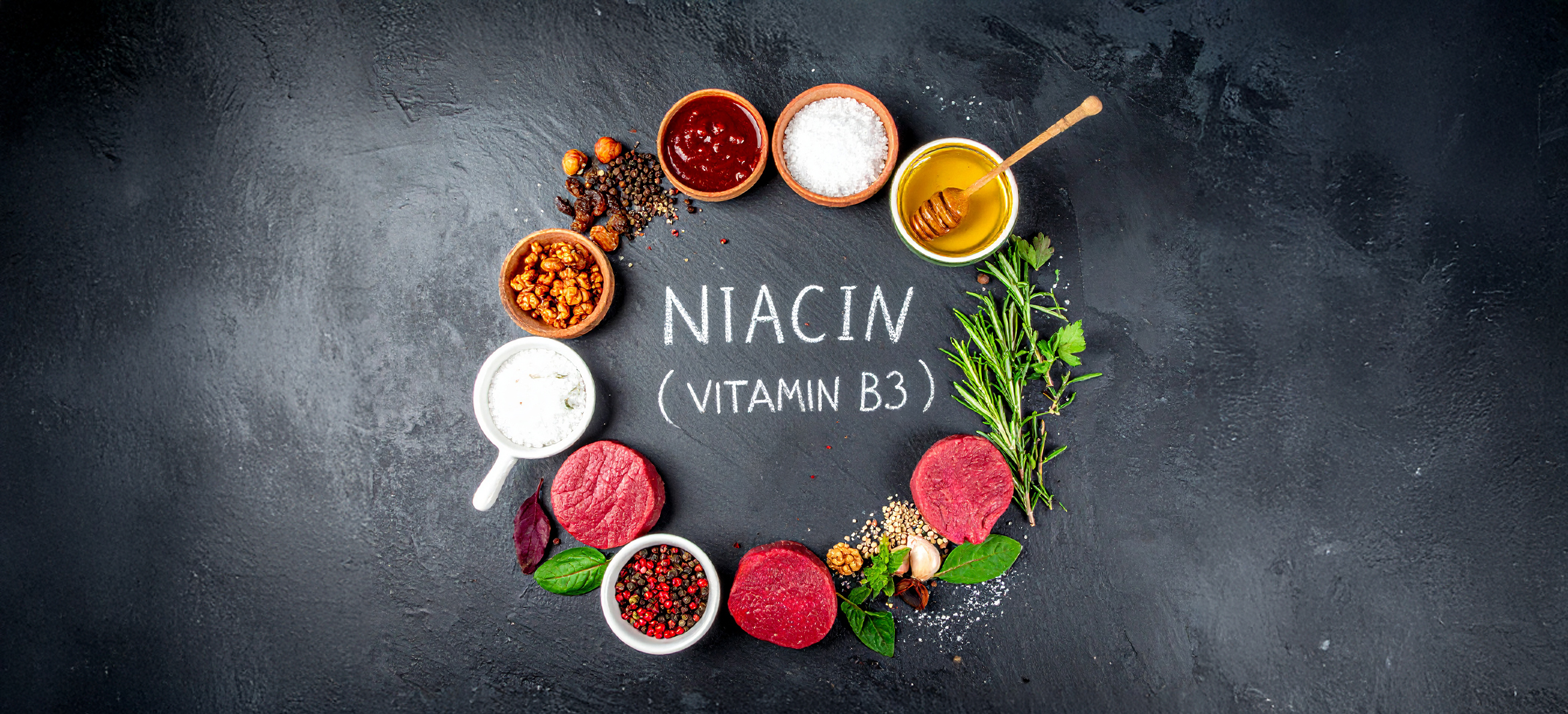The Importance of Niacin in a Healthy Human Diet
When it comes to nutrition, vitamins in the B-family are some of the most powerful yet often overlooked. Among them, niacin (vitamin B3) stands out as a vital nutrient that fuels energy production, supports brain function, and protects cardiovascular health. Although our bodies need only modest amounts of niacin each day, its role in keeping us healthy is profound.
What is Niacin?
Niacin is one of eight B vitamins that work together to help the body convert food into energy. It comes in two main forms — nicotinic acid and niacinamide (nicotinamide) — both of which are active in the body. Unlike some vitamins, niacin is not only obtained from the diet but can also be made in small amounts from the amino acid tryptophan, found in protein-containing foods.
Why Niacin Matters
- Energy Metabolism
Niacin helps form two essential coenzymes: NAD (nicotinamide adenine dinucleotide) and NADP (nicotinamide adenine dinucleotide phosphate). These are involved in hundreds of reactions that convert carbohydrates, fats, and proteins into usable energy for the body. Without niacin, the body’s energy production slows dramatically.
- Nervous System and Brain Function
Adequate niacin supports brain health by aiding neurotransmitter synthesis and protecting against cognitive decline. Studies suggest that people with sufficient niacin intake may have a lower risk of developing age-related memory problems.
- Skin Health
Niacin plays a role in maintaining healthy skin. A severe deficiency leads to dermatitis as part of the condition pellagra, but even mild inadequacy may contribute to skin irritation and sensitivity.
- Digestive and Cardiovascular Health
Niacin supports proper digestion by ensuring that cells in the gastrointestinal tract function efficiently. At therapeutic doses, niacin has also been used to lower cholesterol and triglycerides, though such treatment should only be done under medical supervision.

Source: The New Zealand Food Composition Database.
Signs of Niacin Deficiency
While rare in developed countries, deficiency still occurs where diets rely heavily on unprocessed corn or lack protein. The classic disease of niacin deficiency is pellagra, characterized by the “three Ds”:
- Dermatitis (skin inflammation)
- Diarrhea
- Dementia
If untreated, pellagra can be fatal, underscoring the importance of niacin in human health.
Daily Requirements
The Recommended Dietary Allowance (RDA) for niacin is:
- Adult men: 16 mg per day
- Adult women: 14 mg per day
- Pregnant women: 18 mg per day
- Breastfeeding women: 17 mg per day
Because the body can make niacin from tryptophan, overall protein intake also influences niacin status.
Food Sources of Niacin
Niacin is found in a variety of foods, making it relatively easy to meet daily needs. Rich sources include:
- Meat and Fish: Beef, pork, chicken, turkey, venison, tuna, and salmon
- Legumes: Lentils, peanuts, and beans
- Grains: Whole grains and fortified cereals
- Nuts and Seeds: Sunflower seeds, almonds
- Vegetables: Mushrooms, potatoes, and leafy greens
Because it is water-soluble, niacin is not stored in large amounts in the body, so regular intake is essential.
Who is at Risk of Low Niacin?
- People with diets very low in protein
- Populations relying heavily on untreated corn as a staple food
- Individuals with chronic alcoholism
- People with certain medical conditions (digestive disorders that affect absorption)
The Bottom Line
Niacin may not get the same spotlight as vitamin C or B12, but it is absolutely crucial for a healthy, functioning body. From turning food into energy to protecting the skin, brain, and cardiovascular system, vitamin B3 plays a wide-ranging role in human health. Including niacin-rich foods like meats, fish, legumes, nuts, and whole grains in your diet ensures your body has what it needs to thrive. In short, making niacin a regular part of your diet is a small step with big benefits for long-term health.

